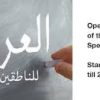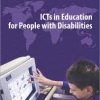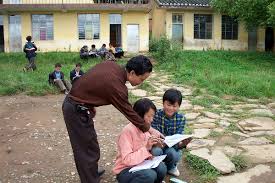ENVIRONMENTAL FACTORS AS DETERMINANT OF ACADEMIC ACHIEVEMENT AMONG HEARING IMPAIRED STUDENTS
₦10,000.00 ₦3,000.00
CHAPTER ONE
INTRODUCTION
1.1 Background of the Study
The development of human resource capacities for sustainable economic growth and development is highly dependent on education. Through imparted knowledge and skills, education increases human capabilities and improves productivity in labour and national growth. People are able to participate and function better in various aspects of life. Education is an important tool in achieving independence and gender balance in equitable distribution of opportunities (Muganda & Mwangi, 2002).
The Government of Nigeria recognizes education as a key contributor to the economy and development in general. Thus, quality of education at all levels has remained an important policy issue since independence. The government has in the past established various commissions to aid educational programme in the country. The most recent development is the implementation of free and compulsory primary education policy for all school-going age learners in primary and secondary schools.
The Government of Nigeria has made deliberate efforts to improve the enrollment of learners who are hearing impaired into schools through awareness creation programmes, establishment of schools for persons with hearing impairment at primary, secondary and higher institutions. More hearing impaired individuals are now studying up to the Master’s level, and competing for opportunities with their hearing counterparts. Without doubt, some private institutions also consider the education of special students in which they provide classes for them.
The academic performance of every child is wired with the state of the cognitive condition that the child his. The reason for this is that cognitive skill is the processor that processes the learning bits that child learns in the class. Raheem (2015) states that there are three basic skills needed by every student to process and exercise the knowledge gained. These skills are receptive skills, cognitive skill and productive skills. Receptive skills are skills that students used to receive information, these are reading and listening. Cognitive skill is the skill used by the students to process the information received, this is the reasoning faculty of the students. Productive skills are skills that the students use to express what they have learnt through receptive skills and their cognitive skill has processed. Learners who are hearing impaired has already have deficiency in one of the receptive skills which may affect his or her academic performance.
In the western region of Nigeria, the education of learners with disabilities was for a long time not given much importance since disability was stereotyped to mean one is cursed and it was taboo for anyone with disability to interact with other people or even be seen in public as they were considered to bring bad luck. Persons with hearing impairment are often ridiculed and neglected in society, with parents and community members openly favouring their normal learners over the hearing impaired learners. This is however slowly changing, whereby the western part of Nigeria has seen an increase in schools for the hearing impaired and an increase in enrollment. Generally, there has been an increase in establishment of hearing impairment department or unit attached to regular schools over the years. This is in response to the rising need for these schools and the constitutional requirement that all children have right to education regardless the disability.
This is by no means the ideal position but it is a step in the right direction in the education of hearing impaired learners in this region. These schools are crippled with inadequate teaching and learning resources, lack of infrastructure such as classrooms and inadequate number of teachers to meet the needs of learners. Most hearing impaired classes are characterized by mixing of learners of different ages and levels into the same room being taught by one teacher. One would ask, how is it possible for one teacher to teach learners who are at different learning levels and linguistic capabilities in the same room at the same time? (Mweri, 2014). The few available teachers have little or no knowledge of Nigerian sign language which is the primary language of communication for hearing impaired learners. They lack the linguistic know how to impart education to the hearing impaired learners who use visual mode of communication while these teachers use oral mode of communication (Mweri, 2014). Given this background, this study intended to investigate environmental factors as determinant of academic achievement among hearing impaired students in Nigeria.
1.2 Statement of the Problem
Repetition and poor achievement in national examinations such as National Examination Council of Nigeria (NECO) and West African Examination Council (WAEC) in Nigeria for the hearing impaired has pose a challenge to the quality of education that these learners receive at various schools. Hearing Impaired learners do not perform comparably with their hearing peers in examinations where. It is believed that they often score below average due to misinterpretation of questions or inability to express their answers in simple and correct English (Ayoade, 2014). However, the challenge that brings the poor performance in their academic pursuit is attached to various variables which are home, self-pessimism, teaching methodology, environmental factors among others. The researcher believes that if the environmental factor is well addressed, this will seriously assist learners with hearing impairment in their academic performance to perform better. The reason is that parents, teachers, friends, teaching materials, classrooms and other factors that can affect teaching learning process are all in the teaching environment where the learners are to learn. Due to this, the researcher is bothered to carry out investigation on environmental factors as determinant of academic achievement among hearing impaired students in Nigeria.
1.3 Purpose of the Study
This study investigated the environmental factors as determinant of academic achievement among hearing impaired students in Nigeria.
1.4 Objectives of the Study
The following were the objectives of this research:
- To assess the influence of environmental factors on the academic achievement of learners with hearing impairment in Afijio Local Government area of Oyo State.
- To determine the influence of teachers on the academic achievement of learners with hearing impairment in Afijio Local Government of Oyo State.
- To assess the extent to which availability of teaching and learning resources influence academic achievement of the learners with hearing impairment in Afijio Local government of Oyo State.
1.5 Research Questions
The following were the research questions of the study:
- What is the influence of environmental factors on the academic achievement of learners with hearing impairment?
- What is the influence of the teachers on the academic achievement of Deaf learners?
- To what extent does availability of teaching and learning resources influence the academic achievement of learners with hearing impairment?
1.6 Significance of the Study
The findings of this research will be utilized by organizations and institutions to design and manage programmes on hearing impairment education that will improve the academic achievement of learners with hearing impairment, create awareness on hearing impairment, enhance their quality of life and further promote the global development agenda. Education experts and stakeholders will use the findings of this research to plan for a holistic education of the learners with hearing impairment through development of policies and guidelines which will be beneficial to them. They will use the findings and recommendations of this research to design curricula, learning experiences and classroom accommodations which will improve academic achievement of learners with hearing impairment. Teachers will utilize the recommendations from this study to make classroom adjustments and experiences that suit the needs of learners with hearing to enable them develop into an all-round individual in school and after school. Schools and institutions will be able to use these findings to formulate favorable admission and finance policies that better support the learners with hearing impairment to enable them acquire professional and functional skills that will help them acquire jobs, businesses, leadership positions and compete with their hearing peers in all aspects of life.
The government will use the findings of this research to enforce current affirmative action policies and formulating more policies and laws that will improve the education of learners with hearing impairment. The government will better support awareness creation efforts by institutions and private individuals and organizations through allocation of funds for training of teachers and public servants in Nigerian sign language in order to be more able to meet the needs of learners with hearing impairment. They will use the recommendations thus made to allocate more resources for infrastructure and learning materials to schools to improve the achievement of learners with hearing impairment. Researchers and scholars can utilize the findings and recommendations in this study to conduct further research in other areas of Deaf education and to improve this sector in general.
1.7 Scope of the Study
This study intended to investigate environmental factors as determinant of academic achievement among hearing impaired students in Nigeria. The scope of this study is some selected secondary schools in Afijio Local Government.
1.8 Definitions of Terms
Academic achievement – This term refers to success or failure in academic subjects determined by set levels and standards, measured by standardized tests and exams.
Curriculum – This refers to organized experiences that occur in the educational process that include the instructional sequence, the subjects taught, the subject content, the school and classroom environment and other activities that take place inside and outside the classroom. It provides guidelines on the content, sequence of activities, teaching methods/ format, time schedules, educational resources and evaluation procedures. Its framework is aimed to teach average learners.
Learners with Hearing Impairment- This refers to learners who are either partially or totally deaf. At times, they may be hard hearer. Also, they may be deaf and dumb.
Environment: This means the physical places that surround learners who are hearing impaired.
School Environment – This refers to infrastructure and facilities available in the school for the Deaf that’s supports learning and general well-being of the student. It includes the physical environment as well as school policies, disciplinary procedures and the general school culture that affects learners and school staff.
Description
ABSTRACT
This study assessed the environmental factor as a determinant of academic achievement among Hearing Impaired students. The case study of the study was Afijio Local Government Area of Oyo State. The study made use of research question as research instrument and sixty (60) respondents were sampled for this study. According to the research findings, it was established that most of the respondents agreed with the questionnaire except for a very few who disagreed. As a result, findings showed that most of their schools were situated in a serene environment because their school has enough space to carry out academic functions. And also, there is nothing in the environment of the school that can pose danger to the students. In fact, many of their schools have power supply that can be used to power multimedia instructional materials. Also, many of their teachers usually play with them to make them feel at home while in class and more than average of their teachers do allow the interpreter to explain to them better before he proceeds. The finding also shows that most of their schools have multimedia instructional materials and most of the teachers do not give practical corrections to their class work and assignment. This shows that many of them affirmed that the instructional materials used to explain subjects to them have the ability of making those subjects understandable to them. Also, many of them confirmed that the instructional materials used to teach them always make them have mental picture of what they were taught. Conclusively, most of the students love to be taught with instructional materials in their schools and most of them have sign language interpreters in their schools. Also, many of the students have a good relationship with their hearing counterpart and also most of their parents did not find it difficult to relate with them, therefore there is no communication gap between the parents and their hearing-impaired children The schools environment is also conducive to learning for the hearing impaired students.
KEY WORDS: Environmental factors, Determinant, Academic Achievement, Hearing Impaired, Students







Reviews
There are no reviews yet.